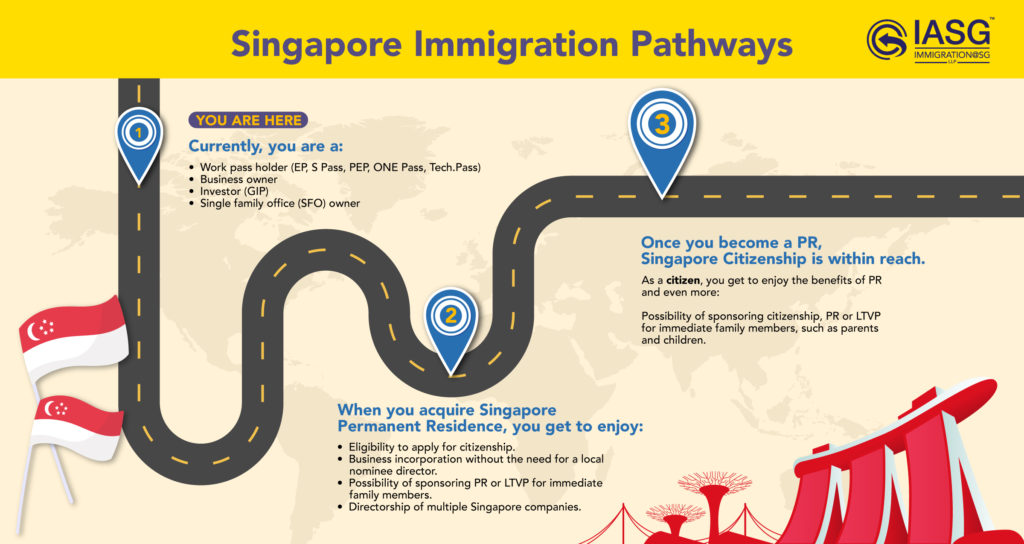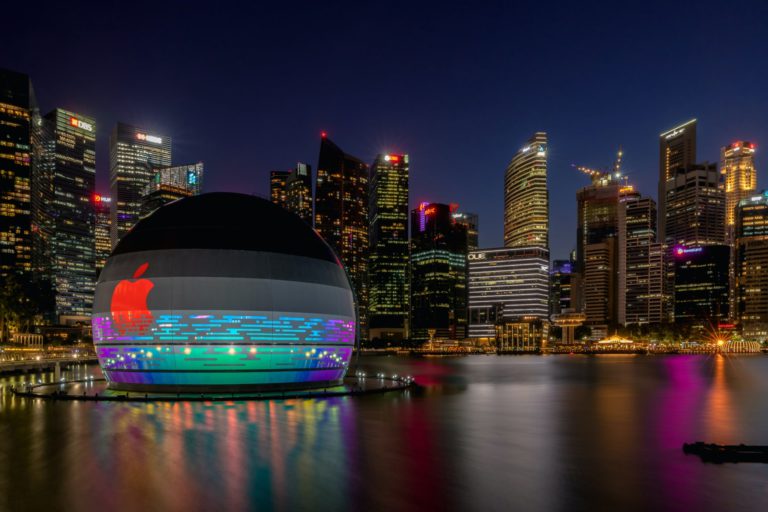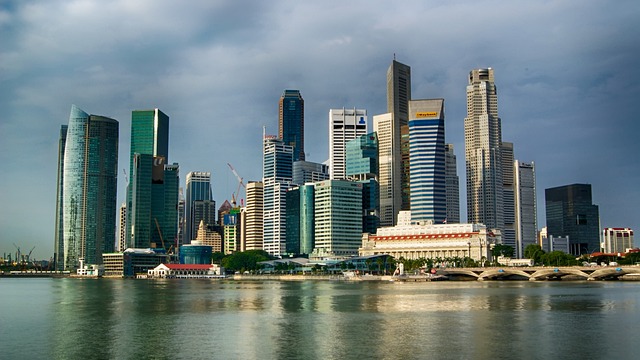Singapore is known for being one of the world’s best cities for expats. The city is safe, stable and an important global hub. Its finance sector is one of the world’s strongest, business opportunities are abundant and the state’s high levels of transparency are unparalleled. A melting pot of cultures, life in the city is colourful and exhilarating, especially for those who relish its fast pace.
Singapore Immigration- A Comprehensive Guide For Foreigners
If you are an expat interested in moving to Singapore, this comprehensive guide provides an overview of Singapore’s economy, life in Singapore and important considerations for expats relocating to the city-state. Topics such as services for expats and immigration policy developments are also covered.
Before delving into these topics, it is important to understand the Singapore government’s stance on immigration:
- Singapore has always been open to immigration. As a country with few to no natural resources, our economy is especially dependent on knowledge, innovation and human capital. To keep the economy afloat, a constant stream of talent and fresh ideas are needed, necessitating immigration.
- The Singapore Government views foreign talent as a complement to the local talent pool. Foreign professionals provide additional perspectives and ideas, resources and training opportunities otherwise unavailable to locals. In other words, foreign professionals enrich the economy.
- Foreign professionals also plug acute manpower shortages in the country, especially in critical or nascent industries. Due to the country’s size and falling birth rate, Singapore’s pool of manpower is small. Foreign professionals help take the pressure off the local manpower supply, which also buys time needed to train up young talents for the future.
- In recent years, the Government has also been encouraging foreigners to more proactively integrate into Singaporean society. This narrative has been pushed in response to rising tensions both locally and worldwide.
What Benefits are There to Living in Singapore?
For many expats, living in Singapore brings a whole slew of benefits.
Political Stability & Safety
Singapore is well-known for its exemplary social and political stability. Crime rates in the country are some of the lowest in the world, and the city was ranked the third-safest country in the world in 2021 behind Tokyo and Copenhagen. Riots and political disturbances are few and far between, and a strong police presence keeps daily life stable and consistent.
Melting Pot of People & Cultures
The city-state is also a multicultural melting pot. The local population is very diverse, hailing mostly from Chinese, Malay or Indian backgrounds. Many other locals and residents also have heritage from countries such as Indonesia and Thailand. Foreigners from all corners of the globe make up roughly a fifth of the population. As a result, life in the city is vibrant and rich, with cuisines from all around the world represented in the local food scene and multiple languages spoken on a daily basis. When these factors are combined with the city’s clean and green environment, expats can expect an extremely high standard of living, a truly metropolitan lifestyle and peace of mind.
Favourable Business Environment & Job Opportunities
Business-wise, Singapore is known for its ease of doing business. The World Bank ranks Singapore the second best city for doing business in the world. The city is also ranked in the top 5 for compliance, professional services and banking sector among other key financial activities. Singapore has also been identified as an increasingly important Asian and global business hub, right behind large cities like Tokyo and Seoul. Because of this, many people around the world are attracted to move to Singapore in search of job, business, and investment opportunities.
Attractive Tax Benefits & Robust Financial Ecosystem
The reasons for Singapore’s ease of doing business lie in the country’s generous tax and business incorporation regimes. Foreigners are encouraged to incorporate in Singapore, allowed to retain 100% ownership over their stakes and permitted to take up directorship. The corporate tax rate is only 17% and newly-incorporated companies enjoy numerous tax exemptions and rebates, as well as access to grants. Singapore is also extremely globally-connected, with trade and tax relief treaties with many countries worldwide. Foreigners benefit from the low cost of setting up a business and access to lucrative markets that they otherwise may not be able to penetrate—enabled by Singapore’s good name as an anti-corrupt business haven.
High Standard of Living & Quality of Life
The same characteristics that enable a high standard of living also greatly boost quality of life in Singapore, especially when compared to metropolises like Hong Kong and London. Singapore’s greenery, cleanliness and ease of mobility make it a great place for retirement. The local education system is famed for its rigour and excellence, encouraging many families with children to settle down permanently (helped by pro-natal housing and social policies that encourage family unity). For these reasons, many expats choose to settle permanently in Singapore compared to other financial hubs, knowing that their long-term needs are well-taken care of.
How Does Singapore Compare to Other Financial Hubs?
Singapore holds numerous advantages over financial hubs such as Hong Kong, Dubai, London, New York and San Francisco.
Singapore vs Hong Kong
In general, Singapore has the advantage of greater socio political stability over the city. Singapore’s exemplary sociopolitical stability promises a safe haven for business owners to seed and grow their companies, and is thus conducive to long-term economic flourishing as disruptions are kept to a minimum. This is a huge draw for many expatriates looking for respite from the tense Hong Kong-China situation.
Policy-wise, Singapore’s passes (especially its ONE Pass) offers more flexibility than those of Hong Kong. For example, Singapore’s ONE Pass allows top foreign professionals five years in the country, compared to the two years granted by Hong Kong’s Top Talent Pass. This additional time grants expats more peace of mind when seeking out opportunities, access to more employment options and more time to establish businesses.
Singapore vs Dubai
While both Singapore and Dubai are cosmopolitan cities, Singapore wins out in terms of legal consistency and economic diversity. With respect to business incorporation, Singapore’s laws are more relaxed compared to Dubai’s, as the latter’s mix of secular and Sharia law complicates the business incorporation process for female entrepreneurs. Foreign nationals may also find Singapore’s common law system more straightforward, as they would not have to get mixed up by international and religious laws.
Singapore also has a more diversified economy than Dubai. Dubai is a historically oil-dependent nation, and its economy has only recently begun shifting towards other activities such as technology and certain forms of high finance. On the other hand, Singapore has already diversified and is therefore stronger than Dubai in areas such as professional services. Business owners may thus find Singapore a more attractive destination for incorporation as ancillary services are robust and easy to access (mostly concentrated in the Central Business District, and an ecosystem of services in their own right).
Singapore vs London, New York and San Francisco
Singapore’s primary advantage over these traditional juggernauts lies in its access to Asian markets, especially those of China, India and Southeast Asia. This advantage is especially important as the majority of the world’s most lucrative and emerging markets are in Asia. As the “gateway to Asia”, Singapore enjoys robust cultural, historical and economic links with major Asian cities such as Xiamen and Jakarta—which cities like London and New York lack in comparison.
Foreigners seeking to penetrate markets like China and India may face cultural barriers if rooted in Western cities. Singapore has the added advantage of being the bridge between East and West due to its English-speaking population and strong ties with both Asia and the United States & United Kingdom. This bridging function represents a unique opportunity for foreigners (especially from beyond Asia) to tap into the Asian market, and thus benefit from stronger relationships between Asia and the West.
What Pathways into Singapore are There for Foreigners?
Expats can move to Singapore through numerous pathways.
- For many expats, the most common route is to apply for a Work Pass via a hiring Singapore-based company or through internal company transfer. Expats must be offered a job by a Singapore company and obtain an In-Principal Approval (IPA) by the Immigration & Checkpoints Authority Singapore (ICA) before coming to Singapore to start work.
- Foreign business owners can set up a company in Singapore and apply for EntrePass or Employment Pass (EP) for themselves so that they can work and live in Singapore.
- UHNWIs can set up their Family Offices and/or invest in Singapore via the Global Investor Programme (GIP) to obtain Work Passes or Singapore PR to be able to work and live in the country.
- Family connections to local Singaporeans and/or Singapore PRs may be another channel to come to Singapore and live here long-term.
- Depending on the situation, immediate family members of main applicant of certain Work Passes and Singapore PR holders may be eligible for Dependant’s Pass (DP), Long-Term Visit Pass (LTVP), and even Singapore PR.
Singapore Immigration Pathways: The Roadmap
For most foreigners, the pathway to Singapore Permanent Residency and/or Citizenship often begins by applying for a relevant Work Pass first.

Work Pass Holders’ Immigration Pathway Into Singapore
The most suitable Work Pass depends on your occupation, professional background and reasons for being in Singapore. Singapore-registered companies may apply Work Passes on behalf of their employees. Below is how IASG can help companies do this:
| Work Pass | If you are an organisation looking to send your staff to Singapore to work OR if you are a business owner / senior professional looking to work in Singapore, we can help put together an application for you. A free consultation can help to identify a pass that best suits the profile, career and personal/professional needs of the candidate. Our application process with the Ministry of Manpower (MOM), Immigration & Checkpoints Authority (ICA) or Singapore Economic Development Board (EDB) is undertaken on the applicant’s behalf. We will provide the critical advisory and hand-holding as well as help you collate the relevant documents, draft and prepare the application package, submit it as well as handle liaisons with the relevant authorities, where necessary. Once the pass has been issued, we will send it to you. |
Types of Singapore Work Passes
There are several work passes that foreign workers can use to work in Singapore, including Employment Passes and Work Permits.
Work Permit
Work Permits are normally issued to low-skilled workers such as domestic work and construction. Many construction workers hail from countries like Bangladesh, China and India, while domestic helpers mostly come from Indonesia, Myanmar and the Philippines. Work Permit holders are generally on short-term contracts and are transient in nature.
S Pass
S Pass are usually given out to mid-skilled workers from Malaysia. These workers tend to work in the beauty industry or in administrative capacities.
Employment Pass (EP), Personalised Employment Pass (PEP), EntrePass, Overseas Networks & Expertise Pass (ONE Pass), Tech.Pass
These various Work Passes are given out to expatriates from all around the world with varied skills and backgrounds. Most are high-skilled or specialised workers with a university education working PMET jobs. In Singapore, foreign PMETs may work in finance and technology. A growing number are flocking to the sustainability and aerospace sector.
To date, 187,300 EP holders and 177,900 S Pass holders are currently valid in Singapore. At IASG, we handle every pass type including but not limited to S Pass, EP, PEP, EntrePass, ONE Pass, and Tech.Pass. If you are interested in applying for any of the passes, contact us for assistance.
Singapore PR Eligibility for Work Pass Holders
If you are an existing Work Pass holder including the S Pass, EP, PEP, EntrePass, ONE Pass, and Tech.Pass (NOT Work Permit), you are eligible to apply for Singapore Permanent Residency. This is contingent on several factors, including: your social integration efforts, long-term plans for settling down in Singapore and the extent of your professional contributions, such as job creation for locals or provision of mentorship opportunities.
Work Permit Holder are NOT Eligible to Apply for Singapore PR
While Work Permit holders are ineligible to apply for Singapore PR, they can take up professional courses to upgrade themselves to an S Pass, which will then qualify them. These courses must be recognised by the Singapore government (via recognised institutions) and have direct relevance to their career. This is a longer route but it is not impossible to undertake.
Business Owners’ Immigration Pathway Into Singapore
If you are a foreign business owner, you may incorporate in Singapore and be able to work and live in the country via EntrePass or Employment Pass (EP). Incorporating in Singapore brings a whole slew of benefits such as tax exemptions and incentives and access to hard-to-penetrate markets. Foreign business owners can get started on the incorporation process with IASG, details below:
| Business Incorporation | If you are a foreign business owner interested in incorporating in Singapore, we front the business incorporation process on your behalf and advise you on all matters related to establishing a business in Singapore. A consultation and profile analysis help us understand your business background and the most suitable company structure for your needs. We provide advisory on all local laws and policies regarding business incorporation and operations in Singapore, including manpower rights, employment quotas and directorship regulations. We undertake the application process with the Accounting and Corporate Regulatory Authority (ACRA) and Ministry of Manpower (MOM) on your behalf. This includes registering the business, collating all documents and information needed (e.g. shareholder information, directors’ particulars, capital information and services offered) and submitting the application package to ACRA. We also help you apply for your own EntrePass or Employment Pass (EP) and also your immediate family members’ Dependant’s Pass (DP) and/or Long-Term Visit Pass (LTVP). Once approved, we can help open corporate bank accounts for your business and apply for Work Passes for your employees. |
Singapore PR Eligibility for Business Owners
As foreign business owners need to have a valid Work Pass to be able to live in Singapore, their eligibility is similar to Work Pass holders. Typically, business owners are on EntrePass or Employment Pass (EP), which make them eligible to apply for Singapore PR.
Investors’ Immigration Pathway Into Singapore
Ultra high net worth individuals (UHNWIs) interested in getting a Singapore Permanent Residency can consider the Global Investor Programme (GIP). Launched by Singapore’s Economic Development Board (EDB), the GIP offers fast-track route for UHNWIs to gain Permanent Residence in Singapore by investing in structured investment vehicles in 25 focus industries.
Generally, GIP investors are assessed based on their personal commitment to Singapore, efforts to root their businesses and/or family offices in the country and the extent of financial contribution they can make. GIP investors can embark on this pathway with IASG:
| Global Investor Programme (GIP) | If you are an investor or UHNW interested in the GIP, we have developed a strategic procedure equipped to handle the complexities of the GIP application process: A consultation and profile analysis helps us understand your investment background, the nature of your existing assets and the most suitable GIP option for you based on these characteristics. This helps us with the pre-assessment procedure, used to assess the suitability of your investment profile and strategy in Singapore based on EDB’s advice. If you are shortlisted, we will undertake the Presentation of Applicant Profile procedure for you. This process involves gathering all information related to your existing assets, businesses and investments, aligning your investment strategy with Singapore’s strategic economic priorities and needs, collating all relevant documents and drafting the entire application on your behalf and finally submit the application for you. Should the application succeed, we will assist you in the handling of in-principle and final approval formalities. We will also guide you through the preparation and completion of investment commitment process, which formally establishes the vehicle through which your investment into Singapore is channelled (be it through a family office, GIP investment fund or locally-incorporated business). GIP candidates interested in getting Singapore Permanent Residence can apply through us. We include a pre-qualifying process with EDB for interested applicants, as the procedure for Singapore PR through the GIP is different from the standard PR procedure. In addition, IASG offers Single Family Office (SFO) incorporation services to support the needs of UHNW investors in Singapore. |
Road to Singapore PR and Citizenship
Candidates can engage with IASG for Singapore PR and/or Singapore Citizenship application service, details below:
| Singapore PR and Citizenship | If you are interested in applying for Singapore Permanent Residence or Singapore Citizenship, we can help you submit your application and handle any communications on your behalf: Our Initial Profile Assessment helps you to identify your profiles’ unique strengths and weaknesses. A client’s profile strength is calculated according to the application criteria set out by ICA, which takes into account factors such as relevance of professional experience and presence of kin in Singapore. A free consultation helps us to understand your profile, circumstances and professional/personal needs in greater depth. We will advise on your chances of gaining PR/Citizenship, as well as the considerations needed to strengthen your profile. Our application process with the Ministry of Manpower (MOM), Immigrations & Checkpoints Authority (ICA) or Singapore Economic Development Board (EDB) is undertaken on your behalf. We will help you collate the relevant documents, draft and prepare the application package, submit it and handle liaisons with the relevant authorities where necessary. We involve you deeply in every step of the process, especially for feedback and application customisations. We can draft appeals for you should your application be rejected by the authorities. This applies to both clients who applied for Singapore PR/Citizenship through IASG previously AND clients approaching IASG specifically to make an appeal. We can help you collate updated documents and draft cover letters detailing your professional and personal developments since rejection. For the latter group of clients, we can lodge the appeal on your behalf with the provision of context and the details of your previous application. |
Why Get a Singapore PR?
Only Singapore PR holders are eligible to apply for Singapore Citizenship, where full benefits of being a Singaporean can be enjoyed by all new Citizens. Some of Singapore’s key social policies and systems include:
- Education: Singapore’s education system is famed for its rigour and intensity, and Singaporean universities count among some of the top institutions in the world. The National University of Singapore (NUS) is ranked #11 in the QS World University Rankings, while IHLs (Institutes of Higher Learning) such as Nanyang Technological University (NTU) and Singapore Management University (SMU) are also among the top 50 universities globally. Singapore’s education system follows the British system (offering the Cambridge O and A-Levels), but other options such as specialised & vocational education and the International Baccalaureate are available in government and international schools.
- Welfare: Every Singaporean and PR has a CPF (Central Provident Fund) account. This account acts as a safety net for retirement, and can only be touched after a certain age. However, it can also be used to fund public property purchases. A percentage of your monthly income is channelled towards your CPF.
- Housing: Most Singaporeans live in flats built by HDB (Housing Development Board), a government agency dealing in public housing. HDB flats are deliberately priced to remain affordable to the general public, although prices of resale flats (flats that have been lived in previously, and are more than 10 years old since date of purchase) are soaring due to inflation. Executive condominiums are also popular among those interested in an upgrade, as they can be privatised (i.e. converted to private housing) after the minimum occupation period of 5 years. Landed property is incredibly expensive due to land scarcity, and only Singaporean citizens are allowed to purchase GCBs (Good Class bungalows)—the highest tier of housing in the country.
- Healthcare: Singapore has a good mixture of public and private healthcare services. The public health system consists of neighbourhood polyclinics and government hospitals, including Singapore General Hospital and the National University Hospital. Fees are subsidised for certain groups such as elderly who possess a CHAS (Community Health Assistance Scheme) card. Private hospitals are far pricier but provide expedited services, and specialist clinics mostly fall under the private healthcare umbrella.
- Banking & Insurance: A crucial criterion for PR and Citizenship approvals is individual financial stability. Banks like DBS, OCBC and UOB offer excellent savings and investment plans, and multiple insurance companies such as Prudential and AIA call Singapore home.
- Marriage: Expats are free to marry as they wish, and should have their marriages registered with the Registry of Marriages. Expats married to locals have higher chances of gaining PR and Citizenship due to stronger local ties and a show of setting roots in the country.
What are My Chances of Getting Permanent Residence or Citizenship in Singapore?
For many expats, settling down in Singapore is becoming an increasingly attractive option. Having worked and lived in Singapore for many years, the most logical next step is to gain Permanent Residence (PR), and then apply for Singapore Citizenship.
Chances of gaining the coveted Singapore PR and Citizenship may vary depending on several factors: professional skills and experiences (especially how aligned it is with Singapore’s strategic economic priorities and critical needs), degree of social integration and concrete commitments to the nation.
Statistically,
- PRs in Singapore increased by 6.3% from June 2021 to 2022, representing a recovery towards pre-pandemic levels and also more successful PR applications.
- The citizen population increased by 1.6% from 3.50 million in June 2021 to 3.55 million in June 2022. Roughly 18,000 of these new citizens were naturalised citizens previously holding PR status.
Singapore Citizenship Eligibility
All naturalised citizens must have been Singapore PRs first. Chances of success are contingent on the degree of continued social integration, professional contribution and amount of effort undertaken by the applicant to sink roots into Singapore.
Settling Down in Singapore
Applicants interested in settling down in Singapore long-term will also need to address concerns such as relocation, housing, schooling for children and many other day-to-day matters. IASG provides a range of ancillary services to support that need:
| Ancillary Services | We provide a range of ancillary services to support your business or residency needs: Relocation services: to ease your move to Singapore, including packing, moving and storage solutions. We work closely with our partners to move your valuable items to Singapore and/ or store them somewhere safe till you find a home. We can also do this for your pets! Home search: we can help you identify a property for rent or purchase based on you or your family’s personal and professional needs and preferences, such as public transport and proximity to the workplace. This can be done prior to or upon your arrival in Singapore. School search and registration: we can help identify and register your children with schools based on their learning needs. |
What is it Like Living in Singapore as an Expat?
Most expatriates in Singapore are PMETs (professionals, managers, executive & technicians) working skilled jobs. A sizeable number of expats are also high-profile entrepreneurs and UHNWIs setting up businesses and family offices in the country.
Foreign PMETs in Singapore work in a diverse range of sectors. Most are professionals in tech, engineering and finance, with a growing number of sustainability professionals searching for work here. A significant number work in the country’s well-established professional services sector, such as in consulting and marketing.
What is the Expat Lifestyle Like?
The lifestyles of expats differ based on their personal preferences, priorities and degree of local integration. However, due to the white-collared nature of their work, most expats do enjoy a comfortable standard of living & quality of life in the country.
Expats who wish to feel closer to home can join country-based societies such as The British Association of Singapore or The American Association of Singapore, which host social activities such as sports events and tours.
As many expats live in the central area to be closer to work, the Central Business District is a popular hotspot, with a mix of traditional and modern bars, cafes and restaurants to choose from. Some expat hotspots include:
- Tanjong Pagar, famous for its trendy independent cafes and “Little Korea” restaurant stretch
- Holland Village, which houses many high-end restaurants and coffee houses
- Robertson Quay, famed for its ambience and proximity to the Singapore River
- Botanic Gardens, a UNESCO World Heritage Site that hosts many arts events and recreational activities year-round
Associations such as the Singapore Baseball and Softball Association, Singapore Badminton Association and Chinese Swimming Club are popular choices for expats interested in sports.
How Do I Live Long-Term in Singapore?
For expats wishing to make Singapore their home, social integration is one of the most important steps in the Singapore PR application. Social integration helps expats establish local social support networks, appreciate the country’s cultural life and grow accustomed to the pace of life in the country. Having local friends significantly eases the process of settling down here and greatly alleviates any stress or loneliness associated with starting anew. Social integration also helps with identity-building and strengthens emotional ties to the land.
Expats and the Local Community
The importance of social integration cannot be stressed enough. Social integration is not only key to a smooth transition to local life, but also to peace for all in the country.
In recent years, the Singaporean government has been shifting its narrative towards a “locals first” policy. The government has been encouraging foreigners to actively integrate into society, and make an effort to be a part of Singapore. Boosting social integration is high on the agenda for the incoming 4G leadership.
There are many unique ways for expats to integrate:
- Singapore is renowned for its food culture. Home to restaurants and mom-and-pop shops serving cuisines from all around the world, as well as food festivals such as Gastrobeats, expats can mingle with locals over the shared pastime of food. Local delicacies are highly influenced by Chinese and Malay cooking. For example, Hainanese British cuisine emerged from the tradition of Hainanese chefs cooking for British colonial forces stationed in Singapore. Peranakan cuisine is a wonderful blend of Malay cooking infused with Chinese and Indian influences—in fact, Peranakan culture is native to Singapore, and is actually the result of intermarriage between Chinese/Indian migrants and the native Malay community.
- Expats can get involved in community events such as Chingay, National Day and the Ramadhan bazaar. These cultural events are the best opportunities to mix with Singaporeans from all walks of life. Many expats have made lifelong local friends from volunteering or participating in these events as an audience member. Cultural events such as these are also good glimpses into authentic Singaporean culture, as most participants come from ordinary backgrounds.
- Many private agencies in Singapore offer local tours, such as orientation tours for foreigners to understand Singapore’s history and culture, as well as food experiences for foreigners to try out local cuisines. Many of these programmes are run by Singaporeans eager to strengthen community bonds, presenting a wonderful opportunity for expats and naturalised residents to become a part of Singaporean society.
- Many expats also join local interest and hobbyist groups to make more local friends.
To give back to society, many expats engage in the following activities:
- Volunteering with local charity organisations
- Blood donation
- Mentoring young students in local schools
- Partaking in Corporate Social Responsibility (CSR) work with their companies
Taking the First Step Towards Singapore Immigration
Living in Singapore as an expat brings a whole slew of benefits. From a high standard of living to a vibrant, multicultural social life, many expats have greatly enjoyed their time in Singapore. Indeed, the growing number of expats choosing to settle down in Singapore with their families is proof of the promise that a career in Singapore holds.
As with any other country, Singapore has its own social complexities that need to be grappled with. However, many avenues exist for social harmony and cultural exchange. Community participation opportunities are abundant, which greatly eases the process of naturalisation for expats seeking to become residents.
We appreciate that residence and integration can be confusing at first for many expats. At IASG, we provide a whole suite of immigration services designed to ease the process of settling down in Singapore. We have helped individuals from over 70 countries move their families here and start afresh. Many have reported enjoying a high quality of life upon having their relocation needs settled.
Take your first step towards Singapore immigration with IASG!






